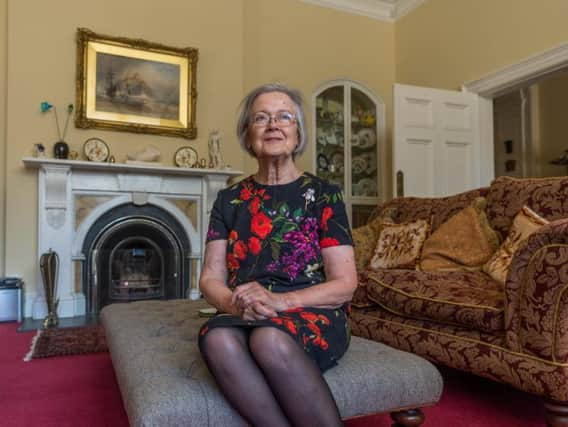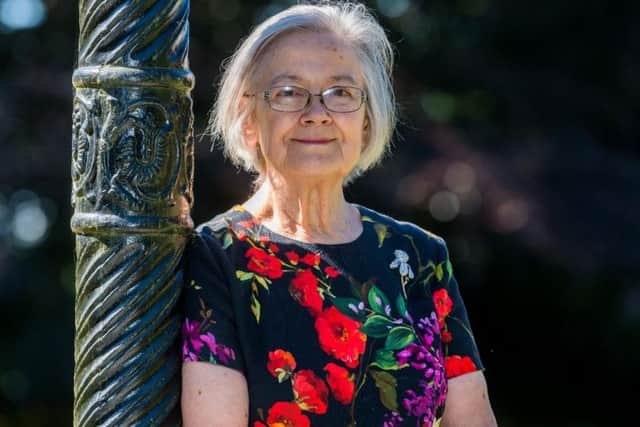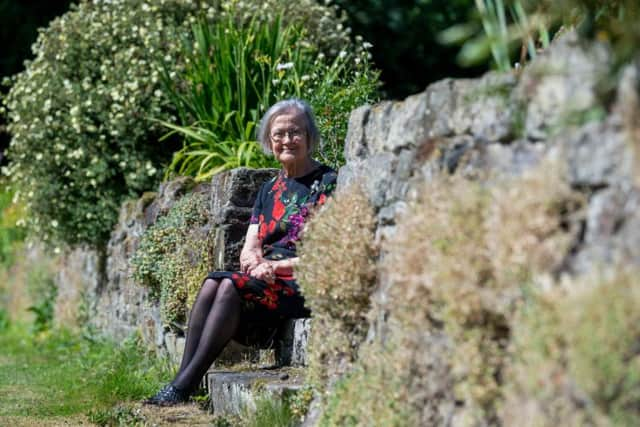Supreme Court President Baroness Hale: '˜Judges should not be people from another planet'


Yorkshire Loves to celebrate its success stories, and they do not come more trailblazing than Supreme Court President Baroness Hale, the first woman to hold the prestigious post following a lifetime of breaking down barriers.
And despite being bound by impartiality, in the spirit of a true Yorkshirewoman she is blunt about the need for change in the judiciary.
Advertisement
Hide AdAdvertisement
Hide AdLady Brenda Hale was born in Leeds towards the end of the Second World War and grew up in Richmond, North Yorkshire, one of three daughters of headteachers.


Even from her days at the “tiny little” Richmond High School for Girls she was making a little local history, as the first girl to go to Cambridge University and the first to read law.
After qualifying as a barrister through a self-taught correspondence course while working at Manchester University, she chose to devote herself to academia.
Advertisement
Hide AdAdvertisement
Hide AdBut her work there was of such note, she says, it “brought me to the attention of the Lord Chancellor” and she was “tapped on the shoulder” to become a judge.


Even then she continued to smash glass ceilings until she was appointed Supreme Court president in February, which left her “delighted and proud”, but not at all fazed
“It’s not the first time I’ve been the first woman in a role,” she says.
“I was the first woman member of the Law Commission and that was a fairly important thing at the time.
Advertisement
Hide AdAdvertisement
Hide Ad“I was the second woman in the Court of Appeal, I’ve been second quite frequently as well.
“And I was the first woman Law Lord, the predecessors of the justices of the Supreme Court.
“So it doesn’t feel so weird to be the first woman.
“Women in my generation could often be first because there hadn’t been any before.
“It’s much harder for now for women to be the first at anything because we’ve nabbed all the first spots.”
Advertisement
Hide AdAdvertisement
Hide AdThe 73 year-old works her way through that extraordinary career in an almost casual style, as if it were normal.
But there is no doubting she understands the gravity of it, and how she can be an inspiration and example to others.
“I feel a responsibility to be as good as I possible can be in the job, partly not to let down women in the future, because obviously there is always a risk if the first woman doesn’t do too well they will say ‘that’s because she’s a woman’.
“So I don’t want to let down women in general.
“And I also feel that if it is the case that my having this role encourages young women starting out in a legal career to think ‘well, if she can do it, I can do it’, that’s a great thing, it’s wonderful.”
Advertisement
Hide AdAdvertisement
Hide AdLady Hale is clear she does not just want to see more women becoming judges, but also northerners, the state educated, and ethnic minorities.
“It matters that the judiciary looks familiar to everybody, so people can think this is our judiciary, they are part of us, rather than some group from another planet,” she says.
“I did go to a state school which most of my colleagues did not, that seems to be quite useful.”
She refuses to back the idea of positive discrimination, or even name blind CVs as championed by the Government.
Advertisement
Hide AdAdvertisement
Hide AdBut instead she calls for “affirmative action” to encourage people from different backgrounds to apply, mentoring, and more flexibility within the profession so people can rise more quickly up the ranks than currently.
“That’s something the system has not so far been very good at.
“None of that is positive discrimination, it’s recognising merit where merit is, as opposed to just going by the easy assumptions as to what is meritorious.”
And she recognises that widespread calls to take big institutions to the North can inspire a new generation and help close the divide with the South and London, which hosts almost all major UK institutions.
Advertisement
Hide AdAdvertisement
Hide Ad“I would dearly love us to sit in the North of England,” Lady Hale says.
“We have a lot of cases that come from the North so if we were to sit somewhere central in the North I would love to do that.
“But I doubt it will be practical when I’m around.
“I might start raising the idea.”
It would certainly make travelling to work easier for Lady Hale, who has stayed in Richmond for much of her life and speaks of how her beautiful Dales surroundings have played a major role in her career.
“I think there’s something in the air in North Yorkshire that makes one possibly want to...I certainly wanted to work hard and wanted to get on.
Advertisement
Hide AdAdvertisement
Hide Ad“School was very encouraging to me, I’m not sure that it was encouraging to everybody but it was very encouraging to me.
“Of course the good thing about the school was that Richmond is such a beautiful place that the teachers stayed, so we had this very stable group of mainly amazing ladies who were very good teachers and gave us a very good grounding.
“There’s something about growing up in a beautiful place, I think it’s good for the soul.”
And surely some good old Yorkshire grit has helped her reach heights few others manage?
Advertisement
Hide AdAdvertisement
Hide Ad“I suppose so, I wouldn’t know about that, that’s for other people to say,” she says.
'No fault' divorces
Supreme Court president Baroness Hale says critics of calls for so-called “no fault” divorces are wrong to say it would make breaking up marriages easier and less moral.
The Law Commission in 1992 recommended divorce should be simplified so that the only grounds for a split are a waiting period of a year, rather than one partner having to claim adultery, misbehaviour or some other “fault”.
The proposals have not been adopted, but Lady Hale insists the current system makes ‘quickie divorces’ which leave a “bad taste in the mouth” easier.
“A lot of people just don’t know that, and so they think that fault-based divorce is harder and more moral, and it’s neither of those things in reality,” she says.